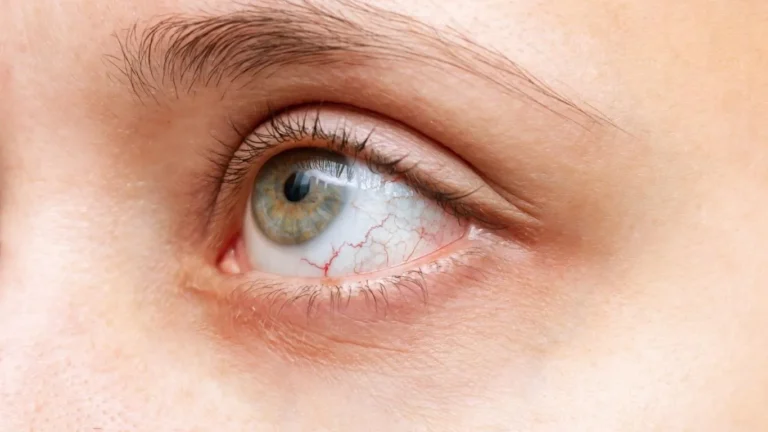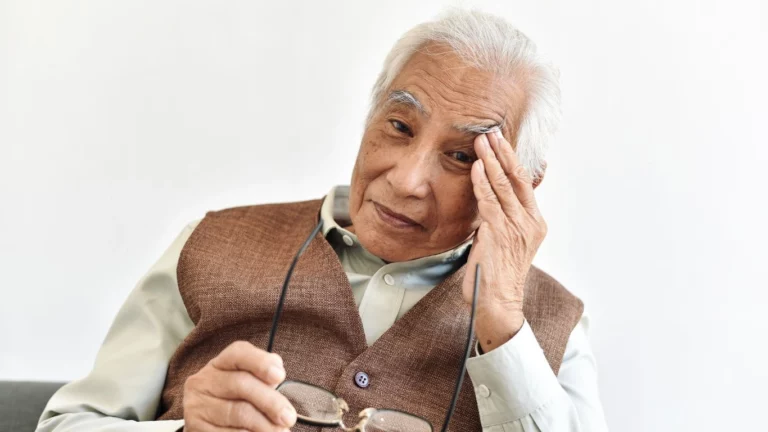How a Low-Carb Diet Powerfully Affects Blood Pressure for Better Health
As a Hypertension expert with years of experience in diagnosing, treating, and helping prevent high blood pressure, I’ve seen the impact that diet can have on managing and reducing hypertension. One question that consistently comes up in my practice is: How does a low-carb diet affect blood pressure? It’s a valid question, considering how widely popular low-carb diets have become in recent years.
If you’re wondering whether reducing your carbohydrate intake could be a game changer for your blood pressure, you’re in the right place. In this post, I’ll break down the relationship between low-carb diets and hypertension, explaining both the science behind it and my personal observations with patients. So, let’s dive right in and see how this dietary approach could affect your blood pressure.
What Is a Low-Carb Diet and How Does It Work?
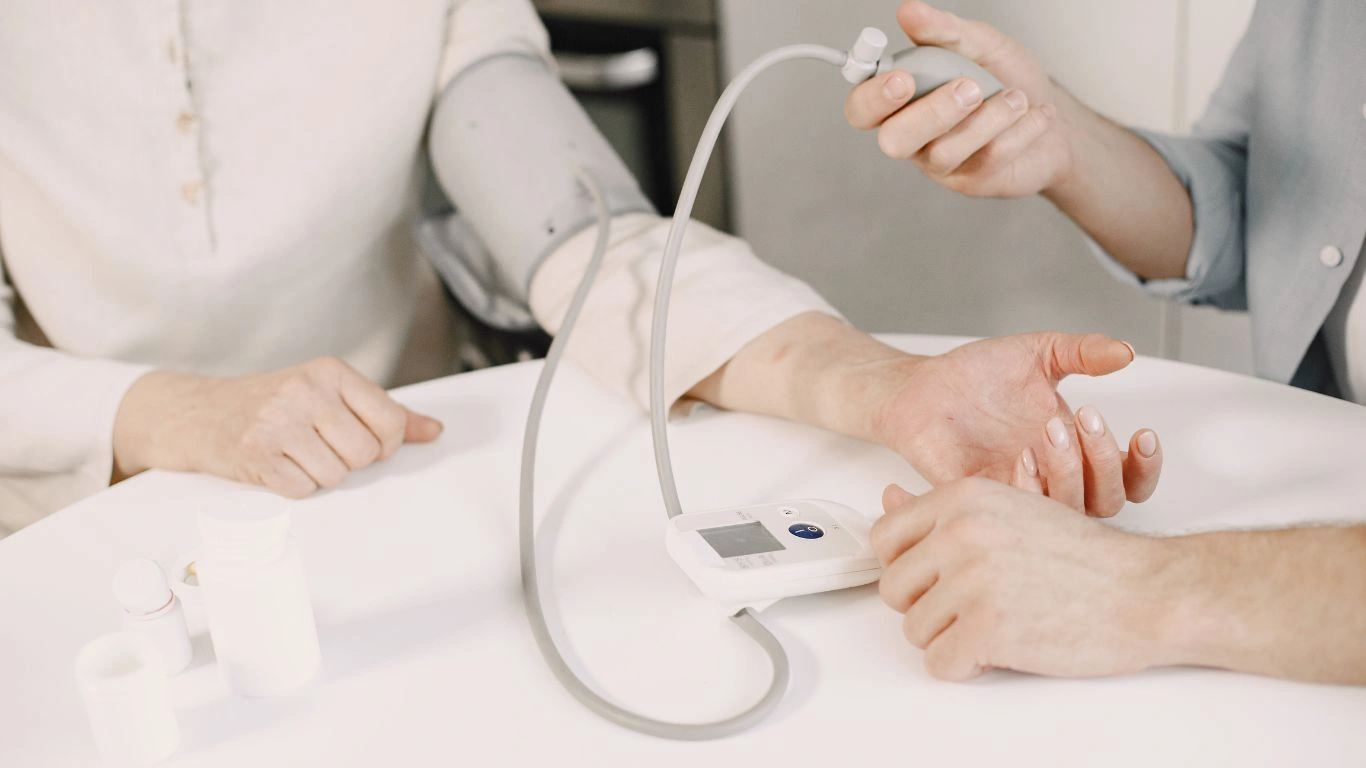
Before we explore how a low-carb diet affects blood pressure, let’s first clarify what a low-carb diet is. At its core, a low-carb diet significantly reduces your intake of carbohydrates—those are foods like bread, pasta, rice, and sugary snacks. Instead, this diet encourages a higher consumption of protein and fats, which include foods like meats, fish, eggs, dairy, and healthy fats like avocados and olive oil.
In my experience, when people cut down on carbs, their bodies start to rely more on fat for fuel, which leads to weight loss. The theory behind low-carb diets is simple: by reducing carbs, your insulin levels drop, your body starts burning fat, and overall inflammation decreases. This is where things get interesting for those of us watching our blood pressure closely, as these changes can play a crucial role in reducing hypertension.
How a Low-Carb Diet Can Impact Blood Pressure
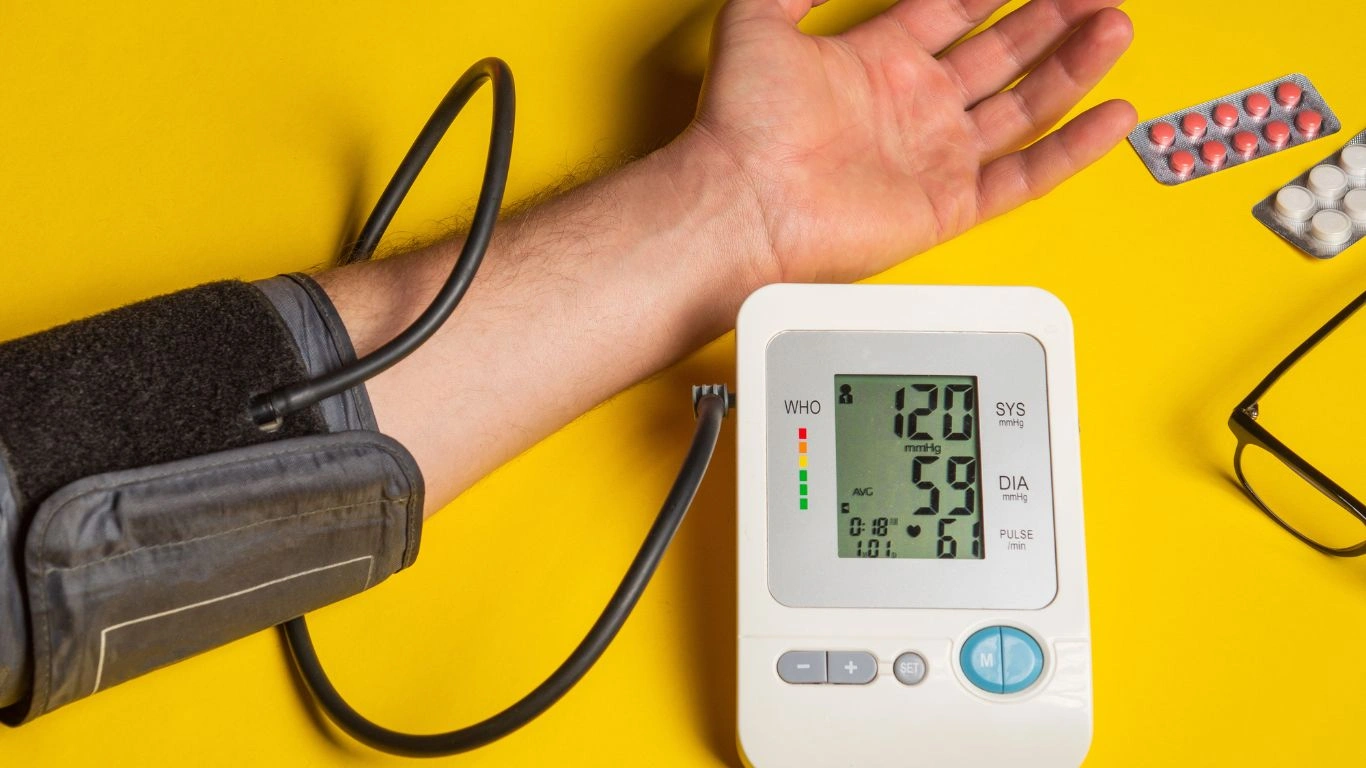
So, how exactly does this all translate into better blood pressure control? Well, a low-carb diet can affect blood pressure in several ways, and from what I’ve seen with patients, the results can be impressive.
- Weight Loss: One of the first and most noticeable effects of a low-carb diet is weight loss. And as many of us know, losing excess weight is often a key factor in lowering blood pressure. When you shed those extra pounds, especially around your midsection, it can lead to improved heart health and a decrease in blood pressure levels.
- Insulin Sensitivity: Low-carb diets help improve insulin sensitivity. When your body becomes more sensitive to insulin, it’s able to regulate blood sugar better, which can reduce the stress on your heart and arteries. This has a direct impact on lowering blood pressure.
- Reduction in Blood Sugar: For individuals with high blood pressure and prediabetes, reducing carb intake can help lower blood sugar levels. High blood sugar and insulin resistance are often linked with high blood pressure, so regulating them through diet can significantly help.
- Decreased Inflammation: Chronic inflammation is another factor that contributes to hypertension, and a low-carb diet can help reduce it. Less inflammation means your blood vessels can relax more easily, helping to lower your blood pressure.
The Role of Sodium in a Low-Carb Diet and Blood Pressure
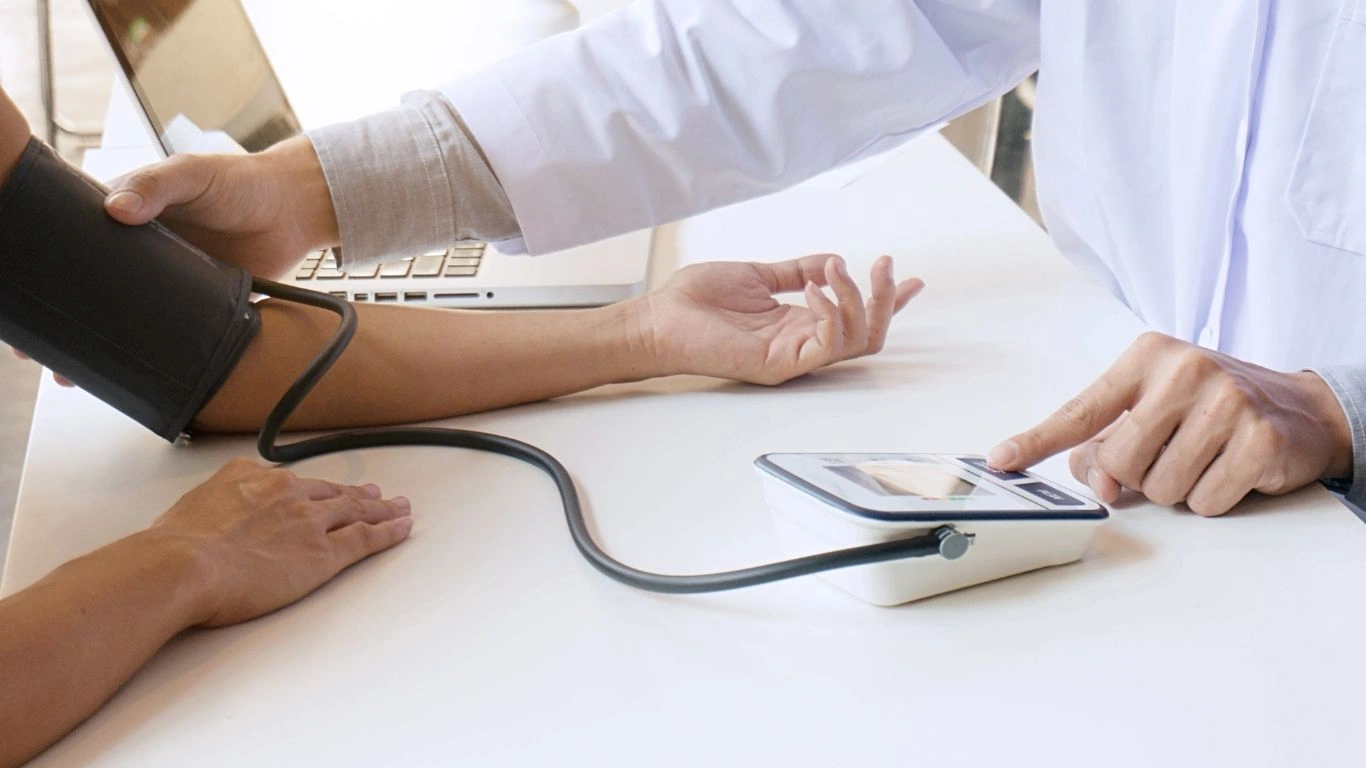
One thing that tends to surprise people when they start a low-carb diet is the relationship between sodium and blood pressure. When people cut carbs, they often experience rapid weight loss in the first few weeks due to water loss. This is because low-carb diets can trigger a reduction in insulin levels, and when insulin levels drop, your kidneys excrete more sodium and water. For some, this can lead to lower blood pressure. However, it’s important to be mindful of sodium intake during this phase.
From my clinical experience, if you suddenly drop your carbs too drastically without adjusting your sodium intake, you may feel lightheaded or dizzy due to a temporary drop in blood pressure. That’s why I always recommend that patients on low-carb diets stay well-hydrated and ensure they’re getting enough sodium, especially in the initial stages.
The Keto Diet: A Special Case
While we’re on the topic of low-carb diets, I want to mention the ketogenic (keto) diet, a very low-carb, high-fat diet that has become a popular choice for many people trying to manage their blood pressure. The keto diet essentially forces the body into a state of ketosis, where it burns fat for fuel instead of carbohydrates. This diet has been shown in some studies to lower both systolic and diastolic blood pressure in the short term.
However, as with any diet, it’s not a one-size-fits-all approach. In my experience, some individuals on the keto diet experience significant drops in blood pressure, while others may feel lightheaded or fatigued during the adjustment period. It’s crucial to monitor your blood pressure regularly, especially when transitioning to a very low-carb diet like keto, and work with a healthcare provider to ensure it’s a safe choice for you.
Personal Observations from My Practice
From my personal experience, I’ve seen patients who’ve struggled with high blood pressure for years make significant improvements after adopting a low-carb diet. Whether it’s from better weight management, lower insulin levels, or a reduction in overall inflammation, the results can be pretty remarkable.
For example, I had a patient in her early 50s, let’s call her Linda, who had been battling high blood pressure for nearly a decade. After trying various medications with limited success, she decided to give a low-carb diet a shot. Within just a few months, her blood pressure dropped significantly—enough to reduce her dependence on medications. It wasn’t a miracle, but the combination of weight loss, better insulin control, and decreased inflammation played a big role in her improvement.
Another patient, Mike, was on the verge of needing medication, but after switching to a low-carb diet, he saw improvements in his energy levels and a noticeable drop in his blood pressure. He’s been able to maintain healthier levels for over a year now, all with just dietary changes and some regular exercise.
While these stories are encouraging, it’s important to note that not everyone will see the same results, and diet alone isn’t always enough to manage hypertension. But in my clinical experience, a low-carb diet can be an effective strategy for many patients, particularly when combined with other lifestyle changes like exercise and stress management.
Are There Any Risks to a Low-Carb Diet for Blood Pressure?

As much as a low-carb diet can be a helpful tool for lowering blood pressure, it’s essential to be mindful of potential risks and challenges. In my years of working with patients, I’ve found that the effects of a low-carb diet can vary widely, and it’s crucial to keep some things in mind to avoid any negative side effects.
Initial Side Effects and the “Keto Flu”
One of the first hurdles people face when adopting a low-carb diet is something called the “keto flu.” This is particularly common for those diving into very low-carb, high-fat diets like keto. The keto flu occurs when the body is adjusting to burning fat for fuel instead of carbohydrates. During this transition, you may experience symptoms like fatigue, dizziness, irritability, headaches, and even nausea.
While this phase is temporary for many people, it can still be a tough adjustment. Personally, I’ve seen patients who experience these symptoms for a few days up to a week, but the good news is that these symptoms often subside once the body adapts. That being said, it’s always best to consult a healthcare provider before starting a restrictive diet, especially if you have underlying health conditions.
Risk of Nutrient Deficiencies
Another concern with low-carb diets, especially very restrictive ones, is the potential for nutrient deficiencies. A diet that’s very low in carbohydrates can sometimes lead to lower intake of certain vitamins, minerals, and fiber, which are typically found in carb-rich foods like fruits, vegetables, and whole grains.
From my own experience, I always advise patients to take a well-rounded approach. It’s not just about cutting carbs—it’s about making sure you’re still getting the necessary nutrients. For instance, people on low-carb diets may need to make a conscious effort to include non-starchy vegetables like leafy greens, broccoli, and cauliflower, as well as sources of fiber like chia seeds and flaxseeds.
Additionally, it’s important to get enough potassium, magnesium, and calcium to support heart health and keep your blood pressure stable. Some patients may need to use supplements to fill in any gaps. I’ve seen firsthand how a lack of these nutrients can lead to issues like muscle cramps and even arrhythmias, which is something to keep an eye on while adjusting to a low-carb lifestyle.
How Long Does It Take for a Low-Carb Diet to Impact Blood Pressure?

So, how long does it actually take for a low-carb diet to start affecting your blood pressure? Well, there’s no one-size-fits-all answer, but based on my experience with patients, most people see noticeable changes within a few weeks to a few months of sticking to a low-carb eating plan.
Initially, the weight loss you experience from cutting carbs can have a significant effect on your blood pressure, often leading to a quick drop in numbers. This is especially true if you’ve been carrying excess weight for a long time. However, the real magic happens over time, as the body continues to adjust and you make healthier food choices. People who stick with a low-carb diet can maintain or even further reduce their blood pressure after several months.
For some people, the first couple of weeks on a low-carb diet might result in rapid changes, especially if they were previously consuming a lot of processed foods or sugar. But if you’re someone who’s been dealing with hypertension for a while, you might need to give your body a bit more time to adjust. Patience is key! It’s also important to note that the improvements aren’t always linear—meaning that some weeks may show more significant drops in blood pressure than others.
Long-Term Effects and Sustainability
Another question that comes up frequently is whether a low-carb diet is sustainable in the long term. Let’s face it, sticking to a diet can be challenging, especially when it involves cutting out some of your favorite foods. In my experience, the best results come from a balanced, sustainable approach. A strict, long-term low-carb diet may not be necessary for everyone, but reducing your carb intake moderately can still provide health benefits, including lowering blood pressure.
Many patients I’ve worked with have had great success by simply reducing their carb intake to a more moderate level rather than going full throttle into a keto or ultra-low-carb plan. This allows them to enjoy the benefits of improved blood pressure without feeling deprived. And let’s be real—feeling deprived can make it harder to stay on track in the long run.
What About Other Health Benefits Beyond Blood Pressure?

Lowering blood pressure isn’t the only potential benefit of a low-carb diet. If you’re considering this dietary change, there are several other health improvements you may notice as well. While these benefits are often related to blood pressure, they go beyond just heart health.
- Better Blood Sugar Control: For individuals with type 2 diabetes or insulin resistance, low-carb diets can help stabilize blood sugar levels. In fact, I’ve seen patients with prediabetes or type 2 diabetes experience dramatic improvements in their glucose control after switching to a low-carb plan.
- Improved Cholesterol Levels: Contrary to what some people may think, low-carb diets—when done right—can actually improve cholesterol levels. By focusing on healthy fats like avocado, olive oil, and fatty fish, people often see an increase in HDL (good cholesterol) and a decrease in triglycerides, both of which support cardiovascular health.
- Increased Energy and Mental Clarity: Many people report feeling more energetic and mentally sharp after adapting to a low-carb diet. This is likely due to the consistent energy supply from fat and protein, which can prevent the blood sugar crashes associated with high-carb diets.
In addition to these benefits, people on low-carb diets often report reduced inflammation, better sleep, and even improved mood. While these changes can vary from person to person, the overall health benefits can be far-reaching. In fact, it’s not just about managing blood pressure—it’s about supporting your overall well-being and feeling better in your day-to-day life.
Can a Low-Carb Diet Be Combined with Other Hypertension Treatments?

One of the common questions I get from patients is whether a low-carb diet can be combined with other hypertension treatments. The short answer is: absolutely! In fact, in my practice, I’ve seen some patients who benefit from using a low-carb diet alongside other lifestyle changes, medications, or treatments they’re already using to manage their blood pressure.
Let’s talk about combining a low-carb diet with medications for a moment. Many people with hypertension take medications like ACE inhibitors, diuretics, or calcium channel blockers. In my experience, a low-carb diet can complement these medications quite well by enhancing their effects. For instance, as you lose weight and reduce inflammation through a low-carb diet, you may find that your blood pressure naturally drops, and you might need lower doses of your medication.
However, this is something you need to do under the supervision of a healthcare provider. If you’re on blood pressure medication and decide to try a low-carb diet, it’s essential to regularly monitor your blood pressure to avoid it dipping too low. I’ve had patients who experienced a significant drop in their blood pressure within just a few weeks of starting a low-carb regimen, and it led to adjustments in their medication dosages.
Exercise and a Low-Carb Diet
Another key aspect of managing blood pressure is regular physical activity, and combining exercise with a low-carb diet can be a powerful way to keep hypertension in check. While some people feel sluggish when first starting a low-carb diet, I’ve noticed that as the body adapts, many people experience more sustained energy and better performance in their workouts.
For example, I had a patient named James who struggled to maintain his fitness routine while managing his high blood pressure. He’d always been active, but his energy levels would dip during intense exercise. After shifting to a low-carb diet, he found he had more consistent energy throughout the day, and his workouts became more productive. This in turn helped him lose weight and further improve his blood pressure.
Of course, exercise alone won’t solve high blood pressure, but it’s an important piece of the puzzle. Whether it’s walking, swimming, cycling, or strength training, adding regular physical activity on top of a low-carb diet can amplify the benefits of both. In fact, one of the most effective ways to combat hypertension is to combine a healthy diet with exercise and weight management—something I’ve seen work wonders for many patients.
Is a Low-Carb Diet Right for Everyone with High Blood Pressure?

So, after all this talk about the potential benefits, you might be wondering, is a low-carb diet right for everyone with high blood pressure? The answer is not so simple. While many people with hypertension can benefit from a low-carb approach, it’s not the best choice for everyone, and there are certain individuals who may need to proceed with caution.
For starters, people with kidney disease or certain metabolic conditions should be cautious about extremely low-carb diets. The increased excretion of electrolytes like sodium and potassium, which occurs during the early stages of a low-carb diet, can put extra strain on the kidneys. If you have any pre-existing kidney conditions, it’s essential to speak with your doctor before starting such a restrictive diet.
Also, people with a history of eating disorders or those who have struggled with disordered eating may find a restrictive diet like low-carb to be mentally and emotionally challenging. A low-carb diet requires a lot of focus and planning, and for some, the restriction of certain food groups can lead to unhealthy relationships with food.
That said, I’ve found that a balanced, moderate reduction in carbs can be a great way to start managing blood pressure without feeling deprived or overwhelmed. This might mean cutting out refined carbs and sugars, but still including whole grains, fruits, and other healthy carbs in your diet. It’s all about finding the right balance that works for your lifestyle and health needs.
References
If you’re interested in learning more about the connection between low-carb diets and hypertension, I recommend checking out some reliable resources:
- Health Usias: A great resource for in-depth articles on hypertension and diet.
- The Effect of Low-Carb Diets on Blood Pressure: A study that outlines how low-carb diets can impact blood pressure.
- Mayo Clinic: They provide a comprehensive guide to the potential benefits and risks of low-carb diets.
Disclaimer
While I have seen positive results in many patients who adopted a low-carb diet to help manage their blood pressure, this article is intended for informational purposes only and should not replace professional medical advice. Always consult with a healthcare provider before starting any new diet or treatment plan, especially if you have pre-existing medical conditions or are on medications. Managing hypertension often requires a holistic approach that combines diet, lifestyle changes, and sometimes medication. Your healthcare provider can help you determine the best approach for your specific needs.

Dr. Gwenna Aazee is a board-certified Internal Medicine Physician with a special focus on hypertension management, chronic disease prevention, and patient education. With years of experience in both clinical practice and medical writing, she’s passionate about turning evidence-based medicine into accessible, actionable advice. Through her work at Healthusias.com, Dr. Aazee empowers readers to take charge of their health with confidence and clarity. Off the clock, she enjoys deep dives into nutrition research, long walks with her rescue pup, and simplifying medical jargon one article at a time.


